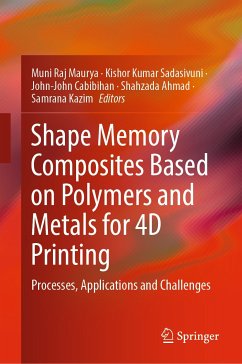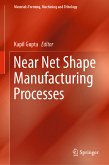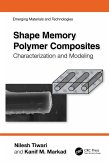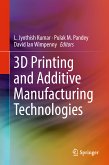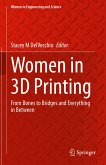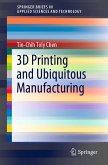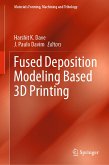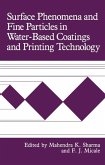The book covers fundamental background knowledge on the synthesis of shape memory polymers (SMPs) and shape memory alloys (SMAs), and additive manufacturing techniques. Polymers and metals and their roles in 4D printing are dealt with separately, and applications of 4D printing are treated in their own chapter. The different alloy compositions and nanoparticle fillers in polymer composites are examined in detail, along with the key mechanisms involved in their processing. Hybrid nanofillers and synergistic composite mixtures, which are either in extensive current use or have shown promising outcomes in the field of 4D printing, are thoroughly discussed. Differences between these novel SMCs and traditional metal alloys, organic and inorganic composites are presented, and means by which they can improve mechanical properties that are triggered by external sources like magnetic field, temperature, and pH of solvent, are set out.
This book provides practitioners, industrial researchers, and scholars with a state-of-the-art overview of SMP/SMA synthesis, additive manufacturing, modification in synthesis of SMCs for 4D printing, and their likely future applications.
Dieser Download kann aus rechtlichen Gründen nur mit Rechnungsadresse in A, B, BG, CY, CZ, D, DK, EW, E, FIN, F, GR, HR, H, IRL, I, LT, L, LR, M, NL, PL, P, R, S, SLO, SK ausgeliefert werden.
Hinweis: Dieser Artikel kann nur an eine deutsche Lieferadresse ausgeliefert werden.

